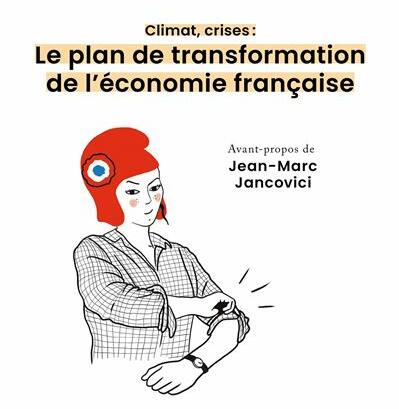 The author, who is the chairman of the Global Warning consultancy agency, thinks it is completely wrong that energy and food prices are usually excluded when calculating inflation.
The author, who is the chairman of the Global Warning consultancy agency, thinks it is completely wrong that energy and food prices are usually excluded when calculating inflation.
Inflation is a key economic indicator. Economists use a whole range of tools to estimate and anticipate it. The main one, “core inflation”, involves excluding energy and food products, which are considered too volatile, from inflation. This is a serious conceptual error, which has masked its return in force everywhere: growing unease on the other side of the Channel, the recent geopolitical problems around the Mediterranean, price overheating in the BRIC countries, and the riots it caused are quick to remind us. Contrary to all forecasts, it stands at 2.4% in the Euro zone.
The current phenomenon reminds us of the increases in raw materials between 2007-2008, which we have been too quick to forget. There are two causes for this. First, the price of agricultural raw materials has a large part to play in this unplanned resurgence in developing countries. Their prices rose by 30% in a year, creating alarm within the FAO.
The other global cause is the rise in energy prices, with a barrel of oil passing 100 dollars and worrying the International Energy Agency.
This “core inflation” is a basic error, a biased “non-inflation inflation” concept, about as much use as a chocolate fire guard. The recent report by the Economic Analysis Council on the price of oil recognises both its extreme volatility and its upward trend. Therefore, only considering the first type of inflation means implicitly denying the constraints of physical resources on fossil fuels – and in particular oil – which lead to the second type. Thus, by removing the volatility of the price of energy from “core inflation”, we hide this crucial component’s long term upward trend.
We can blame the climate for their volatility over the last few years for the price of agricultural raw materials, w. In Russia in mid-2010, in Australia recently…. At the world level, these climate disasters (can we still call them “natural”?) and the tensions they provoke are no longer an exception – they are happening much too often and with a frequency and an intensity that seem to be increasing.
Therefore, by wanting to remove their volatility we are hiding their long term tendency to rise, while this growing volatility is probably becoming a fundamental and long-term element in inflation.
We will effectively see an inflation of inflation. All of a sudden inflation is everywhere, when we had managed to forget about it for the last fifteen years! It will be at the centre of economic, social, and financial debates.
Economic: the comments by the president of the ECB indicate that it will react strongly to this threat. But what sense can be given to a rate increase in a recovering economy with no influence over the price of oil? And will worldwide inflation stop at our gates as if by magic?
Social: in certain countries, due to their budgetary situation the inflation of consumer prices will not be accompanied by rises in salary. And in emerging countries, the possibility of new random climate events will boost price rises, a factor for social trouble and inflationary spirals. And what about France with its automatic indexing of social minimums, rents, and pensions?
Financial: indexing the livret A rate to inflation has justified its recent rise to 2%. What will happen if the rule brings the yield of 170 billion Euro of cash savings in the Livret A close to that of the 1000 billion Euros of general life insurance funds?
Some will say that these tensions can be explained by the worldwide demographic dynamic. Others will accuse speculators. This is true, but is not quite the full story.
The Chinese vice president Li Keqiang was very clear recently, even before the latest geopolitical events: “China is committed to working with other countries to find a solution to the world energy and resources challenge.”
After the amnesia that followed the trauma of the financial crash in 2008, the return of inflation forces us to re-evaluate the two major financial risks for the economy and finance, which are energy and the climate.
Michel Lepetit, president of the Global Warning strategy consultancy agency.
Original title: INFLATION = ENERGY + CLIMATE
(Picture credits: © Paul Fleet – Fotolia.com)

